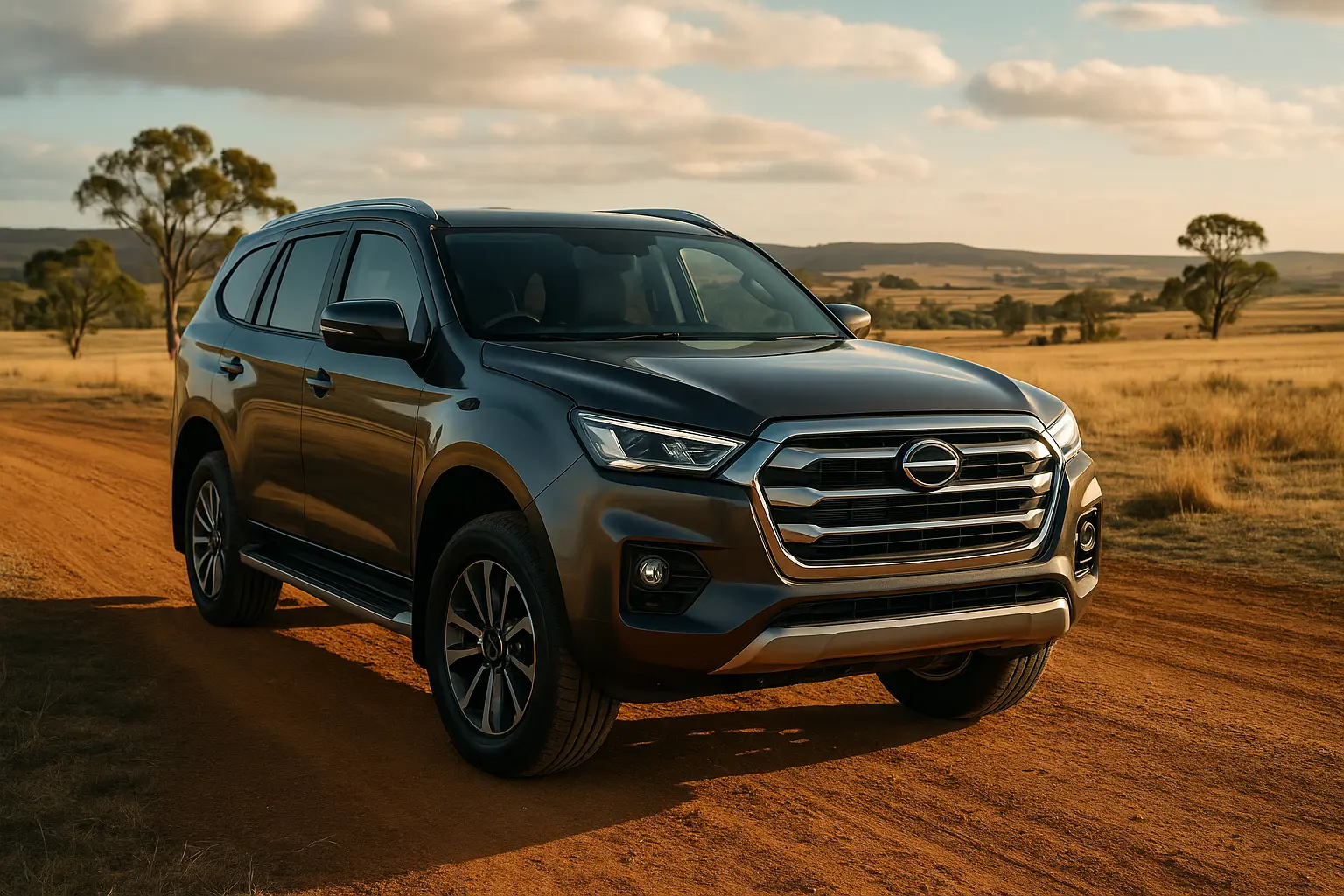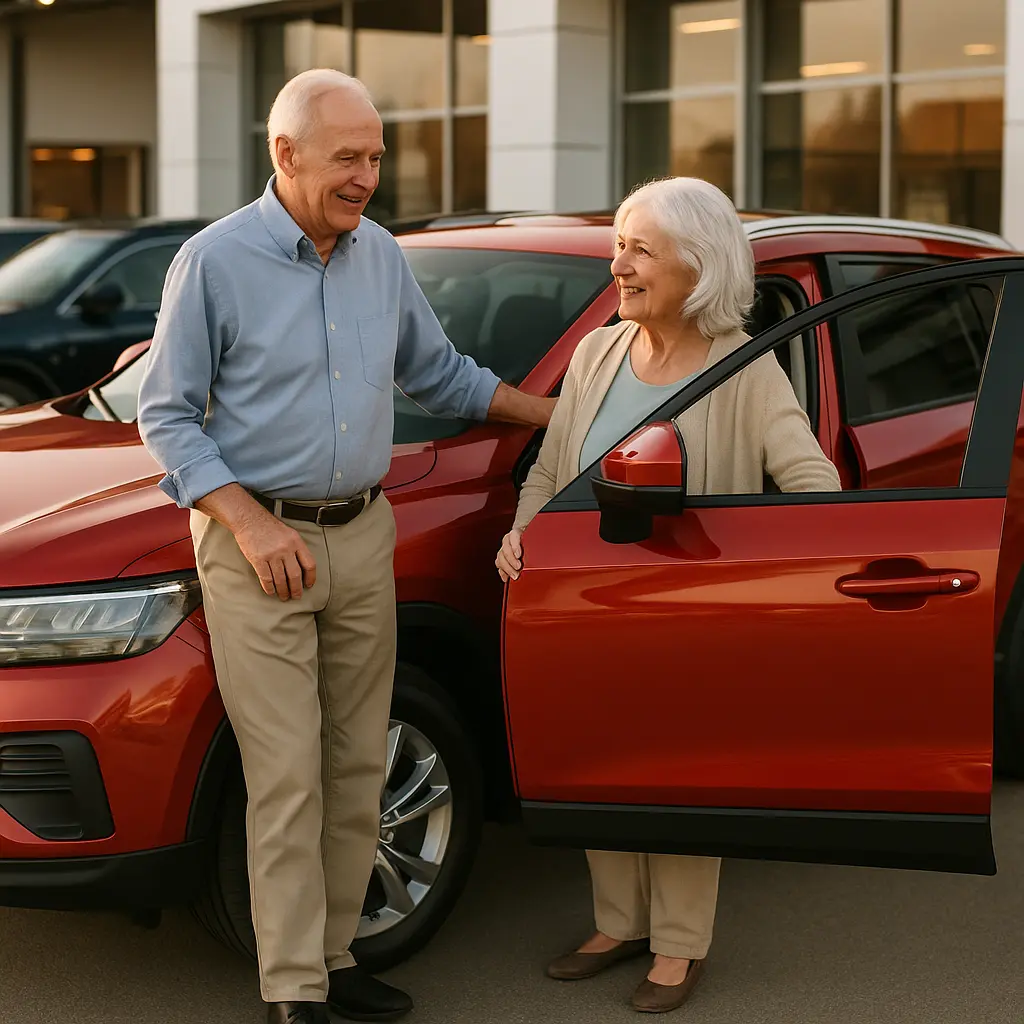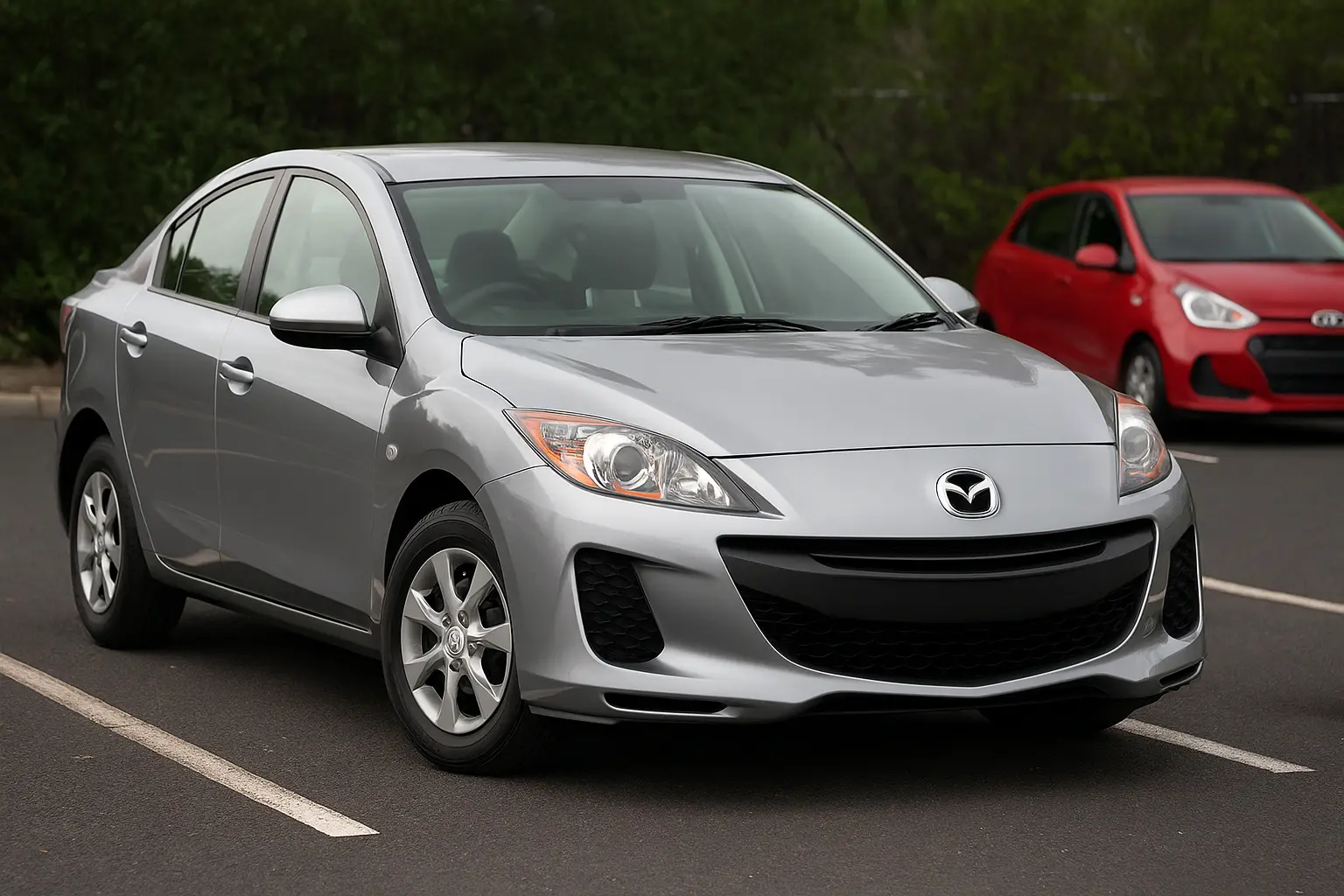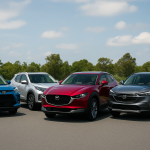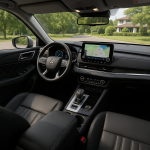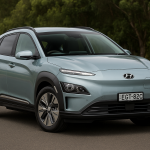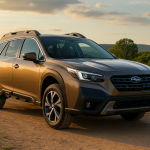Are Diesel Cars Still Worth It for Long-Distance Aussie Drivers?
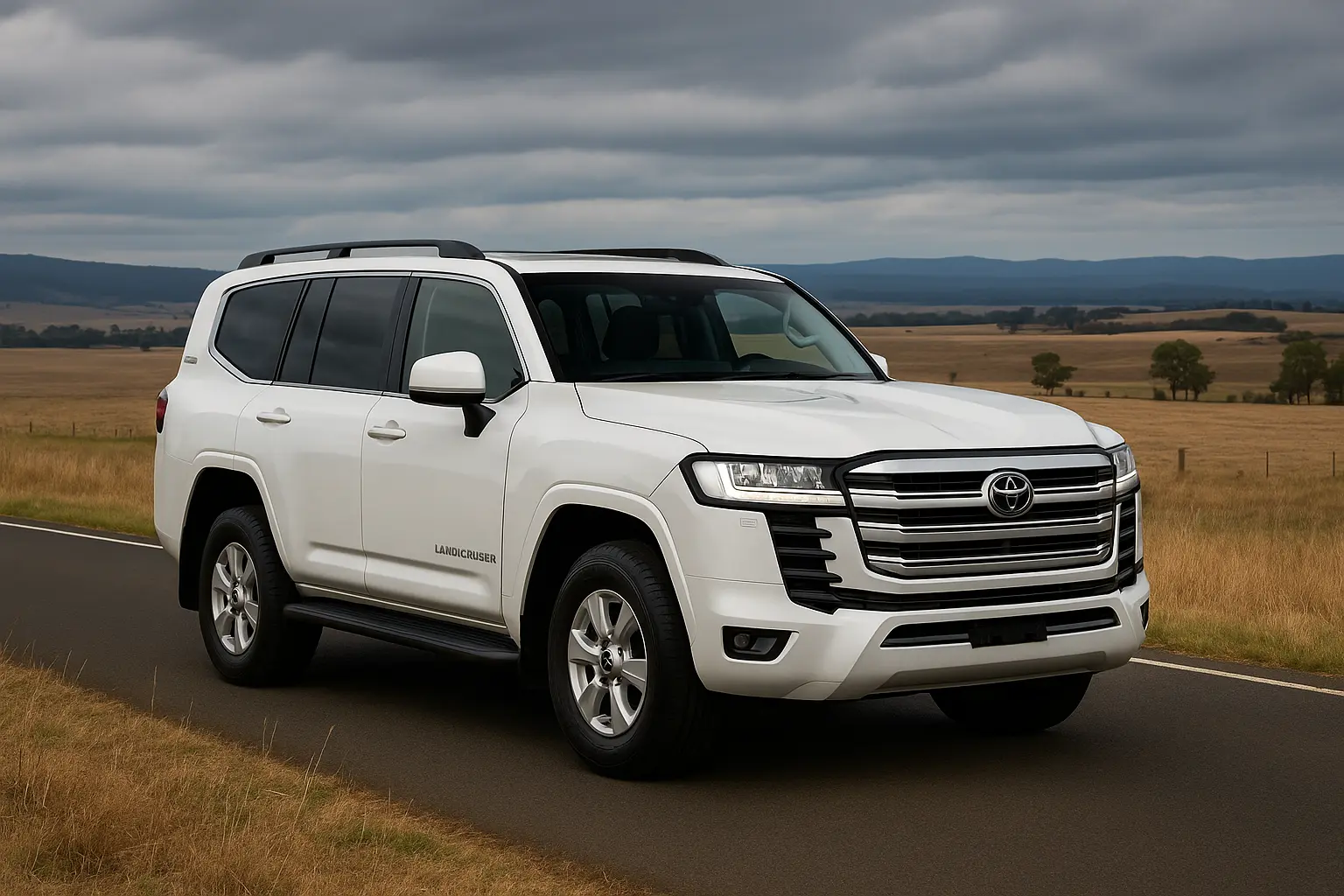
In a landscape increasingly dominated by electric vehicles (EVs), hybrids, and environmental regulations, one question keeps popping up for Aussie motorists—Are diesel cars still a good idea for long-distance travel? For decades, diesel-powered utes, SUVs, and wagons have been the backbone of rural and outback travel. But does that still hold true in 2025?
Let’s break down the pros, cons, alternatives, and real-world considerations—especially for those regularly travelling long distances across Australia’s diverse and rugged terrain.
🚗 Why Diesel Cars Became the Long-Distance Favourite in Australia
Australia is a big country. Really big. Whether you're crossing the Nullarbor, heading up the Stuart Highway, or just clocking hundreds of kays on your rural commute, long-distance driving is a fact of life outside urban centres.
Diesel vehicles rose to dominance in this space for several reasons:
- Superior Fuel Efficiency: Diesel engines extract more energy per litre than petrol engines, offering better economy over long distances.
- Greater Torque: Essential for towing caravans, trailers or boats, diesel engines offer excellent low-end torque.
- Fuel Availability in Rural Areas: In the Outback, diesel is far more reliably available than premium unleaded or electric charging.
- Engine Longevity: Diesel engines, when properly maintained, are known to outlast petrol counterparts.
- Range: Diesel tanks paired with efficient engines often provide ranges of over 1000km between refuels.
⚖️ Diesel vs EV for Long Trips in 2025
One of the most pressing comparisons today is between diesel and EVs for long-distance driving.
🔋 EVs: Advancements, But Still Limitations
Electric vehicles have made massive strides in 2025:
- Extended Ranges: Models like the Hyundai IONIQ 6, Tesla Model Y Long Range and BMW iX now offer real-world ranges between 500–650km.
- Charging Infrastructure Growth: Australia’s fast-charging network has expanded significantly, particularly along major highways.
However, they still present limitations:
- Sparse Charging in Rural Areas: Outside of major corridors, charging infrastructure can be scarce.
- Long Recharging Times: Even with ultra-fast chargers, a 10–80% charge can still take 20–30 minutes.
- Payload and Towing Limits: Many EVs aren’t suited for the heavy-duty towing often required in rural life.
⛽ Diesel: Still the Outback’s Workhorse
For sheer reliability and go-anywhere flexibility, diesel vehicles remain unbeaten in the bush. Key advantages include:
- Better fuel economy when fully loaded or towing
- Freedom from charging station dependency
- More robust for harsh weather and terrain
- Ubiquity of diesel across remote servo stations
🔍 Fuel Economy in Australia – How Diesel Stacks Up in 2025
Let’s get real. Fuel prices are volatile, but in general:
- Diesel price in metro areas (2025): $1.90 – $2.20/L
- Petrol (91 RON): $1.80 – $2.10/L
- EV charging cost (public DC fast): ~$0.60/kWh
While EVs tend to have lower running costs, diesel vehicles are still extremely efficient for highway cruising. For example:
| Vehicle | Fuel Type | Highway Efficiency | Real-World Range |
|---|---|---|---|
| Toyota LandCruiser 300 | Diesel | ~8.9L/100km | 1100+ km |
| Isuzu MU-X | Diesel | ~7.8L/100km | 1050+ km |
| Ford Everest V6 | Diesel | ~8.5L/100km | 1000+ km |
| Tesla Model Y Long Range | EV | ~17kWh/100km | ~560 km |
| Hyundai IONIQ 6 | EV | ~14kWh/100km | ~610 km |
Verdict: Diesel still offers unbeatable range and efficiency when driving long distances with heavy loads.
🌏 Environmental Concerns and Regulation in 2025
The diesel dilemma isn't just about practicality—it’s also environmental.
🔺 Pros:
- New diesel engines in 2025 comply with stringent Euro 6/Euro 7 standards.
- Cleaner-burning, with better particulate filters and AdBlue systems.
- Lower CO₂ emissions per kilometre than older diesels.
🔻 Cons:
- Still produce more NOx and particulates than EVs.
- Governments are increasingly taxing or discouraging diesel in metro areas (e.g., higher rego in some states).
- Future resale value may drop as electrification becomes the norm.
🧰 Maintenance & Ownership Costs – Diesel vs Other Options
Diesel engines, while durable, come with some unique considerations:
| Factor | Diesel | Petrol | EV |
|---|---|---|---|
| Maintenance Frequency | Moderate | Low–Moderate | Low |
| Service Costs | Higher (filters, injectors, etc.) | Moderate | Low |
| Longevity | High | Moderate | High (fewer moving parts) |
| Fuel Cost per 1000km | $160–$200 | $180–$220 | $80–$120 |
| Towing Capability | Excellent | Average | Limited in most |
Insight: While diesel servicing can be pricier, its capability and longevity make it cost-effective for rural and long-haul use.
🏞️ Rural Driving Tips – Diesel Dominates
Here’s why diesel still gets the nod for Australia’s rural and remote environments:
- Fuel Range – More range means less dependency on remote servos.
- Towing Strength – Caravans, boats, trailers – diesel hauls them all.
- Off-Road Grit – Diesel 4WDs like the Toyota Prado and Ranger are built for rough stuff.
- Mechanical Simplicity – Easier to fix in remote areas compared to complex EV electronics.
- Availability of Parts – Diesel models have decades of parts support in the Aussie market.
⚡ Alternatives: Are Hybrids and Plug-in Hybrids Catching Up?
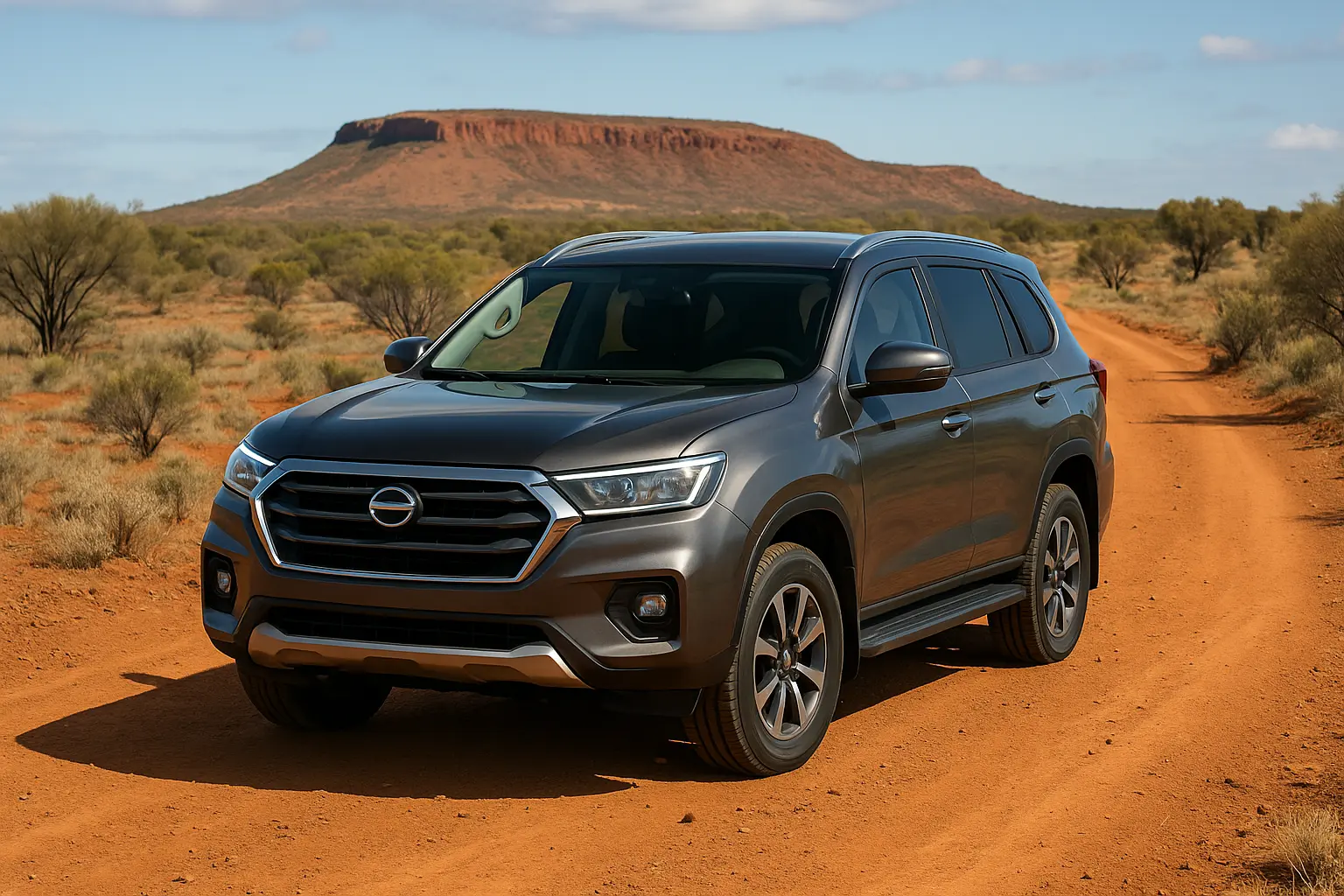
While full EVs have their limitations for long-distance bush travel, hybrids present a happy middle ground:
- Toyota Kluger Hybrid: Great fuel economy (~6.0L/100km), limited towing capacity.
- Mitsubishi Outlander PHEV: Excellent for urban-rural mix, but not ideal for off-road adventures.
- Ford Escape PHEV: Best suited to metro and light-duty country driving.
Hybrids work best if you're splitting time between city and country. But they still fall short of diesel’s towing and long-haul capability.
🔄 What Models Still Offer Diesel in 2025?
Despite the electrification push, many popular models still offer diesel:
- Toyota LandCruiser 300 Series
- Isuzu D-MAX & MU-X
- Mazda BT-50
- Ford Ranger & Everest V6
- Mitsubishi Pajero Sport
- Hyundai Santa Fe (diesel variant)
- Kia Sorento Diesel
- Volkswagen Amarok
- LDV T60 MAX
These vehicles are often favoured by tradies, families towing caravans, rural drivers, and off-roaders.
📉 Resale Value of Diesel Cars – What’s Changing?
The resale landscape is shifting:
- In metro markets, diesel is slowly losing favour due to green incentives, but remains strong in the used ute/SUV market.
- In rural and regional areas, demand for diesel vehicles is still high.
- Diesel 4WDs hold value longer due to scarcity and reputation.
EV resale value remains mixed, depending on battery health, tech obsolescence, and charging availability.
🔑 Buying Advice – Who Should Still Choose Diesel in 2025?
Choose diesel if you:
✅ Travel 20,000+ km annually, mostly highway
✅ Tow caravans, trailers, boats frequently
✅ Live or travel regularly in rural/remote Australia
✅ Need a 4WD that can handle off-road conditions
✅ Want a vehicle with excellent real-world range
Avoid diesel if you:
❌ Drive mostly in cities or short distances
❌ Want ultra-low maintenance and running costs
❌ Prioritise environmental impact over range
❌ Plan to upgrade to an EV within 2–3 years
🔮 The Future of Diesel in Australia – Sunset or Evolution?
While urban legislation and global manufacturers are phasing out diesel in some markets, Australia remains a special case due to geography and lifestyle.
Diesel will likely:
- Decline in small passenger cars
- Continue strong in utes, 4WDs, and towing SUVs
- Co-exist with plug-in hybrids and extended-range EVs
- Remain essential for commercial transport and long-range touring
Until battery range and charging infrastructure reach true outback-readiness, diesel isn’t going anywhere.
📝 Final Verdict: Are Diesel Cars Still Worth It for Aussie Long Trips?
Absolutely—if your life involves the open road, remote areas, and real utility needs. Diesel cars continue to deliver unmatched range, torque, and reliability for long-distance and rural Australian driving. While EVs and hybrids are catching up, they’re not yet a full replacement for the specific challenges of Outback travel.
So, if you're shopping for a road warrior that can handle dirt, dust, towing, and tank-like reliability—diesel is still a rock-solid choice in 2025.
Leave a comment
Your email address will not be published. Required fields are marked *


